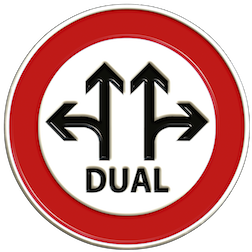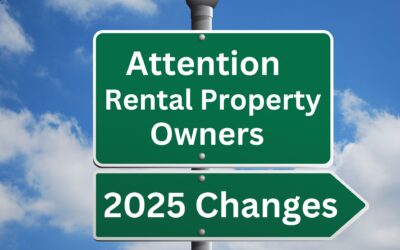Is your Real Estate Agent really YOUR Real Estate Agent?
Sounds like a funny question, but when you are buying a home you want to make sure. You need to know if the Real Estate Agent you think is your representation is actually representing you. This is why Minnesota wants you to be given the disclosure Agency Relationships in Real Estate Transactions early on in your home buying or home selling process.

It is important to have a real estate agent who knows the contract and is watching out for your interests. As a home buyer you are agreeing to make payments for the next 15, 20 or 30 years. As a home seller you are reaping the benefits of making all those payments. Either way you want to have good representation watching out for you.
Succinctly put: Agency relationships or representation is vested with the real estate broker. And therefore also with all the real estate agents in the brokerage who owe the 6 fiduciary duties to the buyer or to the seller they are contracted to represent. That is it in a nut shell, but before you start your home search make sure you know how to identify if the person you think is working in your best interests actually is!
The 3 Relationships Types of Agency Representation
The 3 types of agency in Minnesota are Sellers Agency, Buyers Agency and Dual Agency. Each of these kinds of Representation are addressed in the Agency Relationships form you, by law, should be asked to sign on first substantive contact with a real estate agent. Please note this document is not a contract and does not bind you to an agent or any kind of representation. It is a disclosure form only.

Minnesota is very much a consumer protection state and they want to be sure that people understand agency and can make informed decisions when home buying or home selling.
Sellers Agency Relationships
Sellers agency is simple. The sign in the yard tells you is representing that home seller in the home selling transaction. The thing to remember is a sellers agency relationship binds not only the real estate broker but also all of the real estate agents who work for that real estate company.

For instance, Remax Results is a real estate broker and has hundreds of agents in several offices throughout Minnesota and Wisconsin. When one agent from Remax Results lists a home for sale the entire company lists that home and represents that seller. The ReMax Results real estate agent is signing the listing agreement on behalf of their real estate broker, Remax Results. In so doing they bind every real estate agent for Remax Results to represent that seller in any real estate transaction. So now every single real estate agent with Remax Results represents that seller too. The home seller is not just hiring one real estate agent they are enlisting the entire real estate brokerage.

Buyers Agency Relationships
Buyers agency relationships are similar, but opposite to the sellers agency relationship. When a real estate agent or real estate broker signs a buyer representation agreement they bind themselves and their broker and all of the agents in company to represent that buyer. This is for any possible real estate transaction, unless specifically noted otherwise on the contract.
Dual Agency Relationships
Dual Agency is a mix of both buyer and seller agency relationships. For example: an agent from Remax Results signs a listing agreement with a seller. That listing agreement is now binding all the agents with Remax Results to represent the seller. Many agents work with home buyers and sellers so any one of those hundreds of Remax Results agents could have a buyer for that newly listed home for sale.


Dual Agency Relationships in Practicality
In the eventuality that the buyer would look at a Remax Results listing and then want to buy that property now we are prepared. If a buyer refuses to agree to a dual agency relationship they might miss out on the perfect home. Same for a home seller who does not approve the possibility of dual agency, they might miss the perfect buyer.
Remember by agreeing, you are only agreeing to the possibility of a dual agency relationship. It is not known if you will have a dual agency relationship until you find your perfect home or buyer and learn who they have as their representation. Both buyer and seller would have to agree to enter into a dual agency relationship with one or more agents from the same real estate sales brokerage.
It could be the very same agent selling his listing or it could be one of the hundreds of Remax Results Agents from a different office. Either way it is still the real estate brokerage of Remax Results bringing the buyer to the process. The Brokerage’s agents are showing the home and writing the purchase agreement and thereby initiating a dual agency representation.
Successful Dual Agency Home Buyers and Sellers
The key to a successful dual agency transaction is that both the agent working directly with the seller and the agent working directly with the buyer respect the agency agreement. Good real estate agents honor the fiduciary duties and representation going to both the home buyer and the home seller.

Representation Example
Lets say a home buyer asks a question such as “What is the sellers motivation for selling?” Remember if you know what motivates another person it can be a priceless nugget in a negotiation. An agent response might be “I don’t know, I am not working directly with the seller. But I can ask.” Or it might be if I am working with directly with the seller a response something like “I don’t know whether I am allowed to tell you that but let me ask the seller what they would allow me to share with you.”

The Non Representation Option in Agency Relationships
There is a 4th option on the Agency Relationships in Real Estate Transactions form you will be asked to sign. The 4th option is actually not representation at all. It is a position a real estate agent can hold in a transaction without representing a client and it is referred to as a facilitator. Facilitators are good options for those who are experienced in real estate transactions.
What is a Facilitator?
A facilitator is not a representative for either the home buyer or the home seller. A Facilitator is simply a real estate agent who is assisting in the transaction of a home being sold. They only owe one fiduciary duty in the transaction and that is confidentiality. A Facilitator can be hired by either the home buyer or the home seller or both.
A Facilitator simply helps to draft the purchase agreement and they facilitate the negotiation process. The home buyer and home seller negotiating with each other and the process of closing the transaction includes lots of important details. The facilitator manages title work processes and interacts with the lender and makes sure everyone has what they need to get the sale to closing. They make the process go smoothly. But the facilitator carries no other obligations to the buyer and the seller other than that of confidentiality.
Fiduciary Duties
There are 6 fiduciary duties that are involved with buyer or seller representation or dual agency. In real estate school agents are taught to remember them by using the acronym OLD CAR.
- Obedience
- Loyalty
- Disclosure
- Confidentiality
- Accountability
- Reasonable Care

Be sure to check out the article on the fiduciary duties of a real estate agent in greater detail. As always if you have further questions be sure to ask. It is too important for your financial health and future for you not to understand. Work with an Realtor who appreciates your questions and takes the time to answer them.
Remember the form Agency Relationships in Real Estate Transactions in a disclosure form only. If you desire representation you must enter into a written contract according to state law. Make sure you know you are being represented before you begin to discuss important items that might effect your bargaining position with a realtor. Make sure your Agent is YOUR agent and they are acting in your best interests. And please do this before you find your perfect new home.
If you are relocating to central Minnesota check out all the wonderful reasons to love St Cloud. It is a beautiful area full of things to do and lots of great houses. I would welcome the opportunity to help you find your perfect place here. Browse my website for more information about buying or selling a home, or property in the Central Minnesota real estate market.
Imagine the endless possibilities...
Find your dream home
Attention MN Rental Property Investors
New rules apply to the 2024 Certificate of Rent Paid (CRP) filing for this year. The State of Minnesota Department of Revenue now requires owners of rental property and their managing agents to file the CRP online and provide service to the renters by using the...
Move-In Ready Accessible Home
3859 21st Avenue S. Saint Cloud, MN 56301 is a fully accessible patio home in move-in condition and ready for you. This well-appointed patio home has multiple accessible features. Such as the ceiling lift, the roll-under kitchen and bathroom sinks, a roll-in shower,...
Hunter’s Paradise Home for sale
This hunter's paradise home is located at 13153 287th Street Saint Joseph, MN 56374. Heavily wooded 10 acres Hunter's Paradise features a totally finished walk-out 3-bedroom rambler style home and a massive pole barn.Hunter's Paradise Home Overview It is an attractive...
One-Level Living Classic Rambler
This one-level living classic rambler has a new price making it an amazing opportunity. This rambler's spacious floorplan has 3 main floor bedrooms, a main floor laundry, plus a walk-in tub.This is your opportunity to have one-floor living in a safe quiet town. Plus...
FHA from First-time homebuyers to Last
FHA Financing is not just for first-time homebuyers. It doesn't matter if you are moving up, or moving out, or all the way across the country. If the fact that anyone can use FHA, not just first-time homebuyers, is new to you, please read on. Let's clear up any...







 With 35+ years experience buyers and sellers get full service ALWAYS.
With 35+ years experience buyers and sellers get full service ALWAYS. 